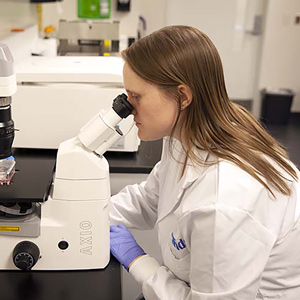-
Open Medical Records: Pros and Cons
Patients now have full access to their online medical records. What are the benefits and downsides?
by Jen Tota McGivney
-
The Individual Sphere of Influence
Can discussion of health inequities lead to actionable change?
by Marci A. Landsmann
-
Policy Matters
COVID-19 Vaccines Are the Key to Restoring Momentum Against CancerCancer screenings and clinical trials have been seriously disrupted by the pandemic.
by Nicholas Warren, PhD
-
Forward Look
Going FlatMost people who opt out of breast reconstruction are satisfied with their decision but are not always supported by their surgeons.
by Kris Conner
-
Get Involved
Bringing Joy to the Pediatric WardStudents Lara Jabbour and Nazanin Nayeri work to cheer up hospital staff and patients.
by Bradley Jones
-
Survivor Profile
Breaking Down BarriersCancer researcher Vicky Forster draws from her own experience with childhood leukemia to emphasize patient voices in cancer research.
by Bradley Jones
-
Hope for Cancer Health Equity
Health care providers and communities are making strides toward ensuring equity in cancer treatment.
by Marci A. Landsmann
-
A Treatment That Came Just in Time
Cancer survivor Laurie Adami reflects on her experience participating in a clinical trial that ultimately contributed to the March 2021 approval of a CAR-T cell therapy for follicular lymphoma.
by Laurie Adami
-
Putting the Patient in the Driver’s Seat
In her new book, Cancer Support Community executive chair Kim Thiboldeaux offers advice to patients on how to steer their way through a cancer diagnosis, treatment and beyond.
by Kevin McLaughlin
-
Rethinking Access to Disability Benefits
Advances in screening and treatment mean there are more cancer survivors than ever, but survivors who struggle to work can face difficulty getting disability payments.
by Jen Tota McGivney
Cancer Talk
Progress Against Cancer
New research fuels progress in cancer survival, prevention and side effect management.
Experts Urge Consideration Before Switching Cancer Care ProvidersPatients should consider the potential risks, and not just rewards, before changing providers.
by Kyle Bagenstose
Vaccines Spark Activity in Pancreatic CancerScientists thought pancreatic cancer wouldn’t respond to immunotherapy. Now research has found vaccines can trigger the immune system to fight the disease.
by Thomas Celona
Navigating Out of Financial ToxicityPeople with cancer face an increased risk of financial hardship. Education and expert guidance can offer patients a lifeline.
by Thomas Celona















